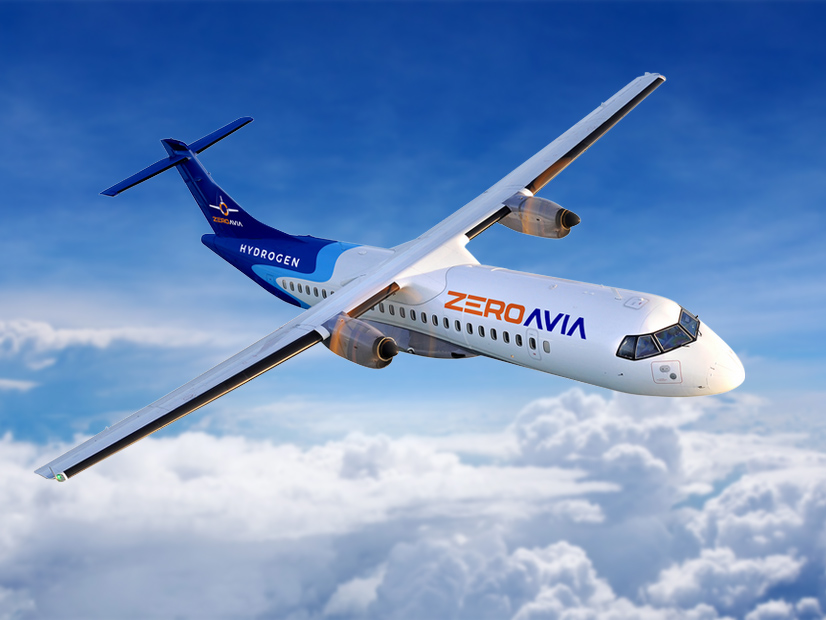
A UK-based developer of hydrogen-fueled airplane motors expects to offer aircraft manufacturers a zero-emission electric powertrain as early as 2024.
ZeroAvia’s first hydrogen-electric powertrain would equip aircraft capable of flying 10 to 20 passengers. By 2026 it hopes to produce a larger motor for regional flights carrying up to 80 passengers. The company assumes its customers will use green hydrogen, produced with renewable energy, as fuel.
ZeroAvia has attracted the attention of commercial carriers, including United Airlines, Alaska Airlines, and Amazon Air in the U.S. and British Airways in the UK. United in December invested an “equity stake” in the company and expects to buy 100 power systems. Alaska also invested in the company in October and will work with ZeroAvia engineers “to scale the company’s existing powertrain platform,” the airline said in a release.
Speaking Tuesday at a webinar hosted by German hydrogen marketing company Mission Hydrogen, Julian Renz, head of program at ZeroAvia, dismissed battery-electric aircraft as impossible to scale up for use in larger aircraft because of battery weight. He argued plant-based jet fuel was not completely emissions-free and similarly dismissed burning other forms of hydrogen as a source of pollution.
“What we envision is renewably powered hydrogen electric aviation. What we focus on is the propulsion system, where you have the hydrogen fuel tanks on board the aircraft, [and] you convert that hydrogen into electricity in a fuel cell system that gets you enough electricity to power an electric motor,” he said. “The only exhaust is water vapor.”
By 2024, Renz said, the company plans to win certification for a 600-kW electric powertrain capable of propelling a 10 to 20-seat aircraft about 200 nautical miles. The company is targeting 2026 as the year it will offer a 2 to 5-MW system for regional aircraft flying 500 miles or more.
“I want to be clear … that we think we have to start with commercial applications as soon as possible, both to really push the regulator as well as to push the infrastructure provision and the technology providers so that they see a near-term use case they can commercialize,” Renz said. “And obviously also, as a young company in this space, we can only live on revenues, ultimately. So that’s what we are trying to get to as fast as possible to then launch new programs.”
ZeroAvia has also received a grant from the state of Washington’s Department of Commerce to create a research and development laboratory in Seattle, he said.
The company flew a small commercial grade aircraft in September 2020 powered by a 250-kW system as a “technology demonstrator,” he said. This spring, company test pilots will fly a hybrid two-engine aircraft, with one engine being traditional prop jet and the other a fuel cell electric motor powered by on-board hydrogen.
“If we hit our technical milestones, you can see that these financial partners have enough leverage, enough capital available, to see us through to certification,” he said. “That is really the most important thing for us.”


